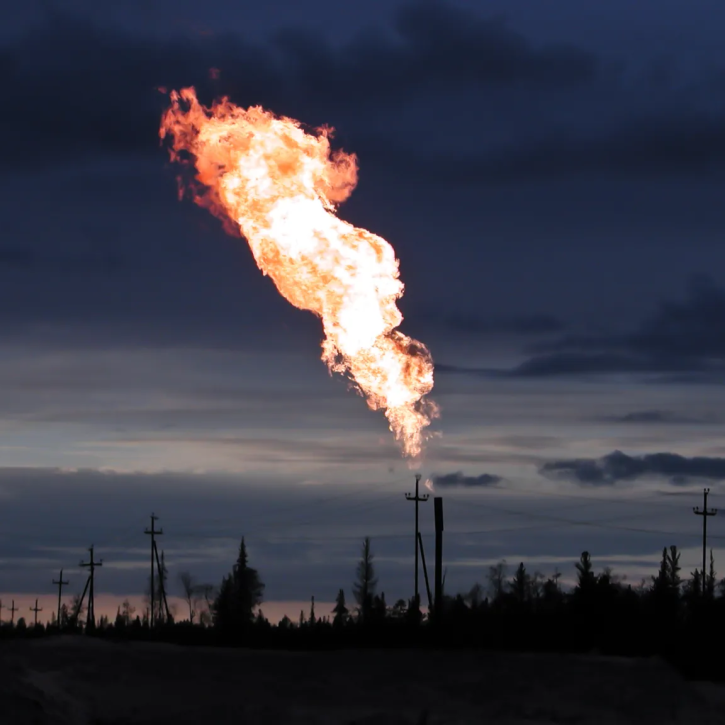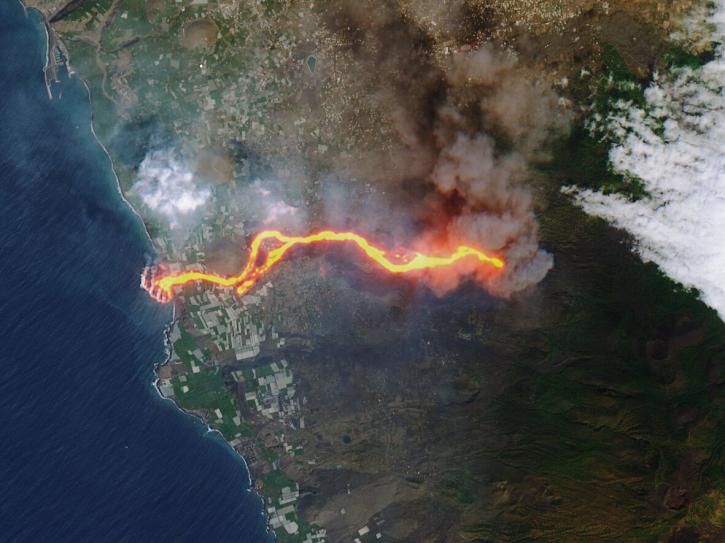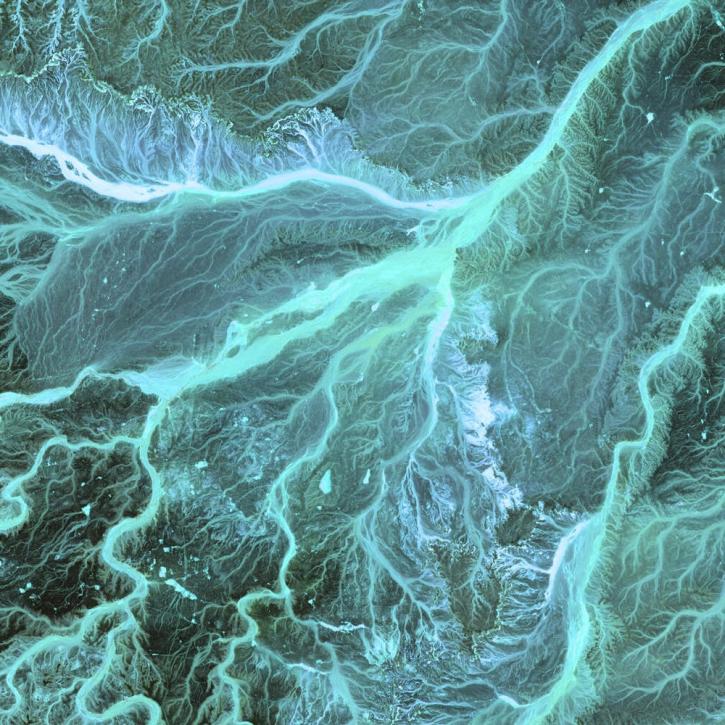The VEDA project is an open-source science cyberinfrastructure for data processing, visualization, exploration, and geographic information systems (GIS) capabilities. Developed collaboratively and mostly reusing existing open-source components, VEDA consolidates GIS delivery mechanisms, processing platforms, analysis services, and visualization tools. It provides an ecosystem of open tools for addressing Earth science research and application needs. VEDA provides:
- A collaborative science environment for data analysis and exploration
- An interactive visual interface for storytelling
- Exploratory GIS and data analysis capabilities
- A dynamic scaling platform for large-scale processing
- A modeling and data assimilation infrastructure scaled through high-performance computing and a cloud-based infrastructure
VEDA Components
VEDA consists of three components that are interoperable: the Visualization and Interactive Exploration System (VisEx), a data analysis and processing platform (DPP), and GIS.
Visualization and Interactive Exploration (VisEx) System
The public-facing component of VEDA is the VisEx system. VisEx is an adaptation of NASA's COVID-19 Dashboard and a complementary tool to the existing NASA/ESA (European Space Agency)/JAXA (Japan Aerospace Exploration Agency) Earth Observing (EO) Dashboard. Its modified design and technology facilitates the use of Earth science data for environmental change storytelling and enables the visual exploration of data that are transformed into cloud-native formats. The system also supports simple data analysis on the browser along with scaling via Jupyter Notebooks. VisEx includes:
- A transformation of high-value NASA datasets to dynamic visualizations, enabling users to perform on-the-fly visual analysis of Earth science data
- The conversion of high-value datasets to analysis-ready, cloud-optimized (ARCO) formats
- A repository of data-driven stories that are exportable in GIS formats
- A situational awareness system that brings together Earth observation datasets related to greenhouse gasses, air quality, sea level rise, and much more
Data Analysis and Processing Platform (DPP)
VEDA's DPP works in the background to enable interactive, collaborative work with large Earth science data collections. The power of the DPP facilitates large-scale modeling and the development of new products while supporting collaborative tools such as Jupyter Notebooks. The DPP supports access to NASA's Earth Observing System Data and Information System (EOSDIS) data collection, existing ARCO datasets, and new products generated by NASA's Earth Information System (EIS).
Geographic Information Systems (GIS)
VEDA's GIS component provides data formats that are compliant and compatible with GIS standards. VEDA also delivers advanced GIS analysis capabilities online and generates custom, derived layers that can be explored using VisEx and other visualization tools. By collaborating with Esri and NASA ESDIS, VEDA supports the Earthdata ArcGIS Enterprise and the publication of high-value datasets to GIS catalogs.



